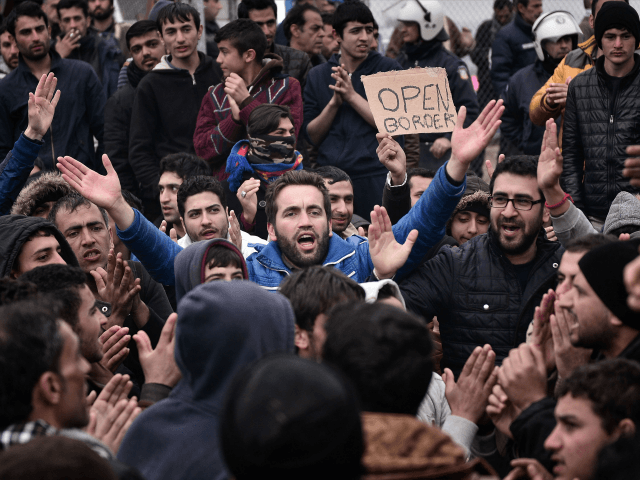ROME — The Hungarian government has rejected new calls for open borders, insisting on the right of sovereign states to control their own borders.
Government spokesman Zoltan Kovacs responded sharply to a Bloomberg op-ed by Andreas Kluth Tuesday, which called Hungarian Prime Minister Viktor Orbán a “saboteur” of European Union (E.U.) immigration reform who had failed to open his nation’s borders to waves of migrants in 2015.
“Perhaps ‘journalism’ like this is to blame for the tragedy at the Moria camp,” Mr. Kovacs responded on Twitter. “Reporting that it’s wrong to require migrants to request asylum in first safe state, claiming PM Orbán ‘blocked’ refugees, pushing the ‘open borders’ position as if it were a human right. It’s not.”
In his September 11 essay, Mr. Kluth urges the E.U. to “strong-arm” leaders who resist, starting with Orbán, in order to “fix” its migration system, or risk a further series of humanitarian disasters like the recent fires in the Moria refugee camp on the Greek island of Lesbos.
The E.U. “still makes most decisions by unanimity, and the usual suspects — always led by Orban and his copycats in the nationalist government of Poland, but also including states like Austria — block every step,” Kluth declared. “In effect, they’re sabotaging the E.U.”
Hungary has stood out for its defense of national sovereignty in opposition to E.U. efforts to coerce member states into taking a certain “quota” of migrants independent of the wishes of their citizens.
In 2016, Mr. Orbán said that the E.U. was “destroying” the continent by forcing member states to accept quotas of mass Muslim immigration, which creates segregated societies and parallel legal systems.
“The uncontrolled influx destroys Europe and it doesn’t even help the migrants. It’s better for everyone to stay in their own territory,” he insisted.
“We are not here to solve the migration problem, but a historical one. We, Europeans, Hungarians, Christians, have to describe our attitude towards immigration,” he said.
In his speech, Orbán criticized leaders like German Chancellor Angela Merkel for encouraging more than a million people to come from the Middle East during 2015.
Allowing this idea to rule “will destroy Europe, and its culture and economic system too,” he said. “And we don’t help those who left their home countries. And those who stay are also losing with this attitude.”
“I don’t even want to think about the integration of Muslim people in Europe. The most we could hope for is a peaceful life next to each other, which is called a parallel society,” he added.
In his op-ed, Mr. Kluth also urges an end to the “notorious and cynical ‘Dublin system’ that requires migrants to apply for asylum only in the first E.U. member state they physically enter, a position that Kovacs says translates into a plea for open borders.
The solution Kluth proposes is for the E.U. to accept migrants “in a humane way” and speedily process their asylum claims, with successful applicants resettled across the whole E.U. “according to a set formula,” regardless of the wishes of member states.
Mr. Orbán has called such proposed changes to the E.U.’s asylum system an implementation of the “Soros Plan” to flood the continent with an unlimited number of migrants.
In 2017, the European Parliament’s Committee on Civil Liberties, Justice, and Home Affairs (LIBE) adopted a report on the amendment of the Dublin Agreement, which would see all member states forced to accept asylum-seekers and for funds to be withheld from nations that refuse to comply.
“The musket is not only primed but loaded: in Europe in the future a permanent and mandatory migrant relocation quota mechanism will be established, with no upper limit on numbers: the mandatory relocation quota,” Mr. Orbán said in response to the plan.
“It is true that we are waist-deep in the struggle to protect this slice of our national sovereignty, but so far we have succeeded, because until now we have been the ones who decide who can live on Hungarian territory,” Orbán said, “but the attack on our sovereignty that the European Parliament has now launched is fiercer than any previous one.”

COMMENTS
Please let us know if you're having issues with commenting.